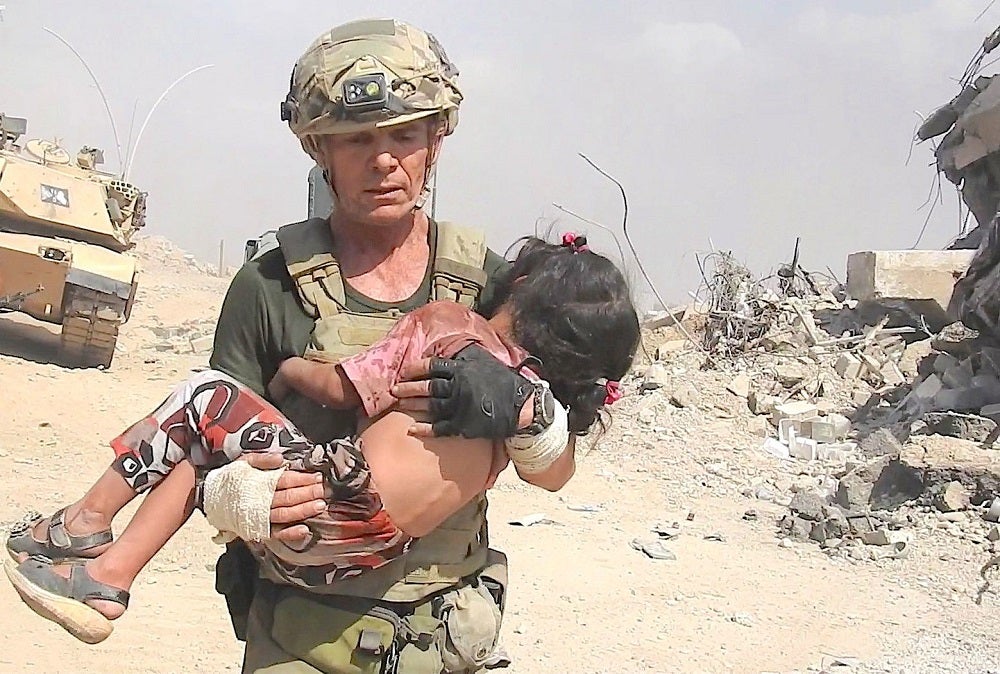Interview with David Eubank – Ex- Special Forces Officer Who Founded the Free Burma Rangers – a Remarkable Relief Organization
David Eubank is the founder and leader of the Free Burma Rangers (FBR), a multi-ethnic relief organization that operates right on the front lines of some of the hottest combat zones. They have provided critical medical aid and assistance to the victims of some of the most brutal warzones in the last 25 years.
Eubank, a former U.S. Special Forces officer, came to prominence when he was filmed running into ISIS fire to save the life of a little girl during the Battle of Mosul. Now a film and book on his and his family’s remarkable lives are available.
He has kindly agreed to speak to Overt Defense about his upbringing, background, military career and the personal beliefs and philosophies that drive him to risk his life to help others.
Note: This Q+A is based on a recorded interview. Though it has been transcribed as accurately as possible some minor editing and reordering of answers has occurred for clarity and context.
Tell us about your personal history. What was your upbringing like?
I was born in 1960, September 29, in Fort Worth, Texas. My dad was an ex-oilman and a Korean War veteran, my mom was an ex-Broadway actress. Both left their jobs to become missionaries in Thailand in 1961 when I was nine months old. I grew up there, went to high school there.
You served in the U.S. Army. Can you tell us about your career there?
I received an Army Officer Scholarship at Texas A&M University and joined the Corps of Cadets. I went to Airborne school and Ranger school and then I was commissioned as an officer. I served in the 1/187th infantry down in Panama as a platoon leader, later as a scout platoon leader. Then I went to the 2nd Ranger battalion where I served as a platoon leader in 3rd platoon, C Company, 2nd Ranger Battalion.
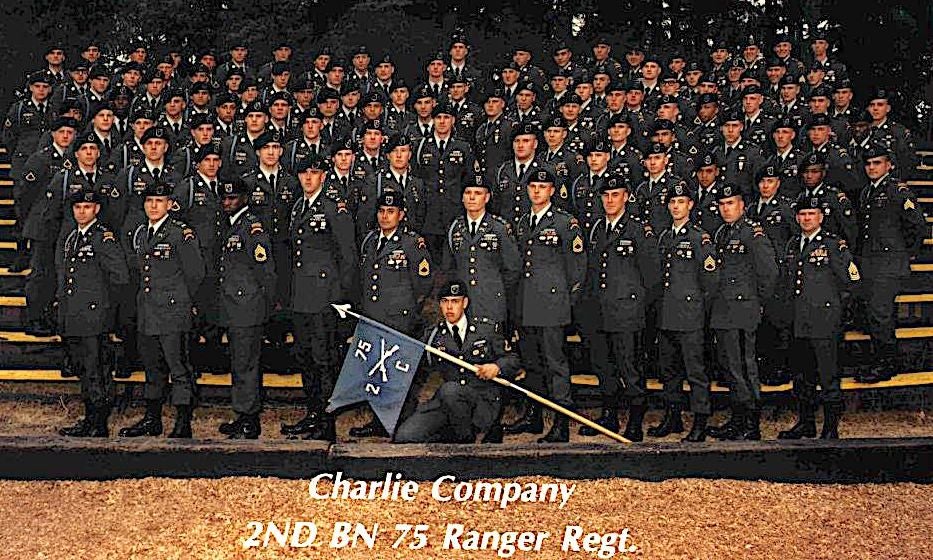
After that I was promoted to Captain; I went and served as a detachment commander in 3rd Battalion, 1st Special Forces Group as a Strategic Reconnaissance Commander and then later HALO for a military freefall team. I was promoted to Major but by then I had met my wife Karen and I got out after almost ten years in the army.
What inspired you to set up the Free Burma Rangers?
At that time a tribe in Burma (Myanmar) called the Wa came out to Thailand and asked for help (background to the Burma Civil War can be found here). They met my parents who were missionaries there and they saw a picture of me with my green beret. They said “We are warrior people; if he is a warrior and he is following Jesus please send him.”
So I got a phone call from my dad saying “come and help us”. Karen and I went in 1993 and again in ’94/95 and full time in ’96. At that time I also went to Rangoon (Yangon) and was able to go visit Aung San Suu Kyi, who was under house arrest. She asked for prayer and work for unity.
So we started the Day of Prayer for Burma, the 2nd Sunday of every March and we began to work with the ethnics for unity and helped sponsor the ethnic nationality seminar in 1997.
Right afterwards the Burma Army launched the offensive of ’97, displacing over 500,000 people in Karen, Karenni and Shan States.
We were in the middle of that displacement and saw the people running for their lives. I remember thinking “I’ll help one person, and they’ll be glad and I’ll be glad.” I had no other plan.
And that’s when I met Eliya.
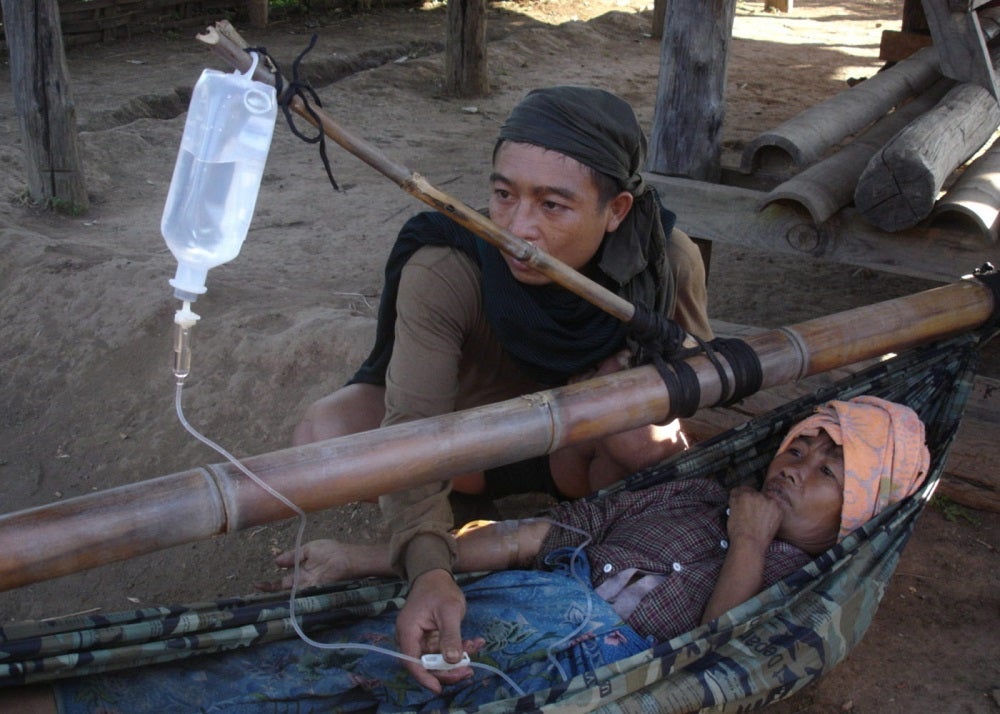
He came out of the jungle as a medic for the KNU as people fled. He said “Can I help you?” I said “Yeah,” and we began treating patients together and then from that came other volunteers. We began to work and then later on ethnic leaders said “Wow! We like the way you’re at the front line helping people in holistic ways; food, medicine, clothing and putting a light on the situation, reporting and building up young leaders! Can you train people?”
So in 2001 we did our first training of relief teams. About twenty people joined. We’ve built up from there.
FBR is a somewhat controversial organisation in that it operates right in the front lines of some of the world’s most dangerous conflicts and does, on occasion, arm its personnel. What do you say to those who criticise this policy?
Our mission is to give help, hope and love to people under attack and put a light on the situation and build up people who want to lead and serve. So why do we do it in the fighting? Because we feel that’s where God has us; that’s my spiritual reason.
“Oppression is wrong and there is a humanitarian gap always between the front line fighting and where the other NGOs are.”
Second, there is my intellectual reason – oppression is wrong and there is a humanitarian gap always between the front line fighting and where the other NGOs [Non-Governmental Organisation] are. They’re doing crucial work but they are not where the fighting is so when families break out of an area and if they’re wounded where is the first time they are going to get help? One mile? Two miles? Ten, twenty? In Syria it could be fifty to one hundred miles before anyone can help you. So there is a big humanitarian gap from the front line back to where most NGOs work. So we feel that our role is right in that gap.
And in our hearts we love these people, we care about them, we can’t stand by watching them suffer. Many are killed, or die or are not fed before they get any help. So in our hearts we have to help them.
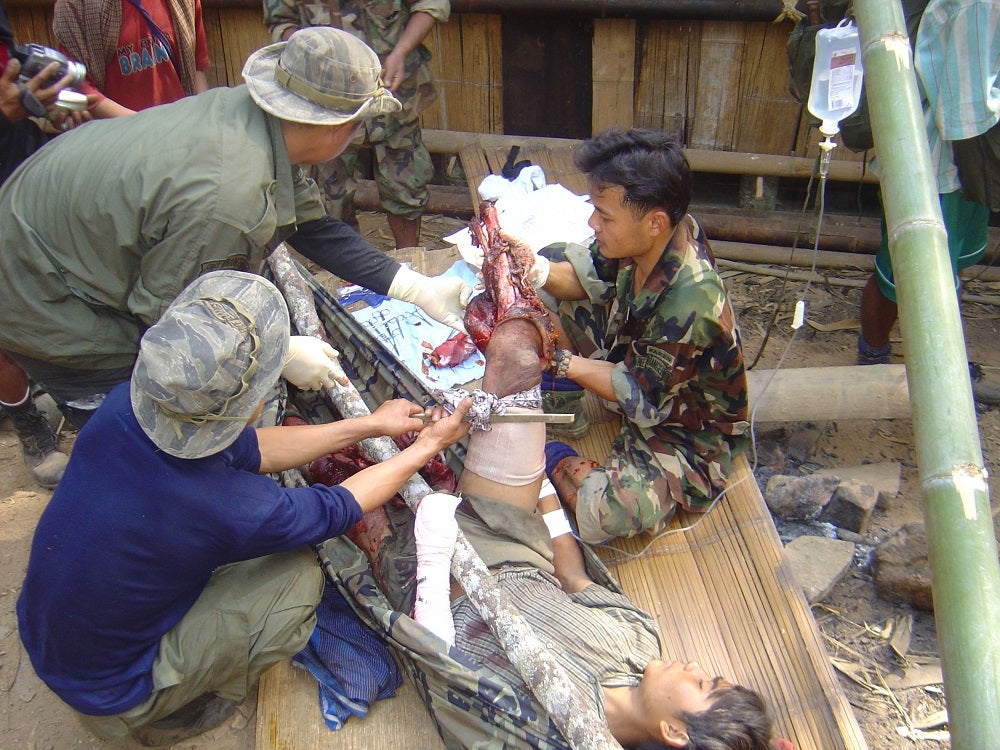
Then there is the physical. I’m an ex-Special Forces officer and we have many people who are medical or ex-military or just outdoors people who like adventure so we like to do that kind of work. We like being where the action is. We enjoy helping people. We are not too afraid when things go “BOOM”. We know what to do. We may not be that good at it, but we know what to do. And we know our limits and that we are not good at everything.
We try to bring people with different skills; doctors, dentists, lawyers, councillors, video people to help and to get the news out. And we serve in that humanitarian gap.
When we first went to Iraq we had thin skinned land cruisers that served as ambulances, but as the battle intensified one of our donors said “You’re going to need armor,” and gave us an armoured vehicle – which right away got shot 17 times the first time I was in it!
“You’re going to need this pistol, you’re going to need this rifle.”
But it proved itself worthy because it kept moving and we went with no weapons at all because we aren’t there to fight. But we are not pacifists, so in other words we are not there to attack anybody, but if they attack us or the people we are serving then as a Free Burma Ranger you are allowed to defend yourself, which is a fundamental human right for everybody.
In the Battle of Mosul four of us were wounded and one of my team members, Shaheen, killed. I was wounded four times. Weapons became available on the battlefield. Our first weapons there were the Kurds saying “You’re going to need this pistol, you’re going to need this rifle.”
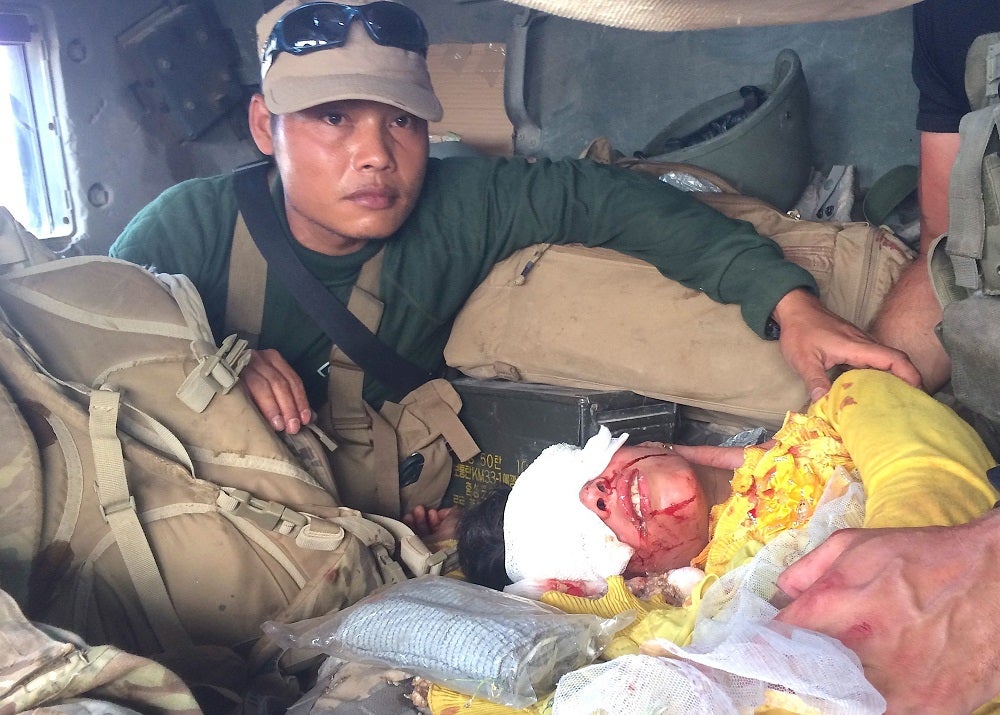
In the case of the pistol within one minute of being handed that pistol we were attacked by ISIS. So we have defended ourselves and fought back and we ended up with some AKs and other weapons the Iraqi army loaned us to help defend the IDPs [internally displace people] as we guided them out of ISIS fire or, as you saw, rescued them under ISIS fire.
Free Burma Rangers has now expanded into other countries. Can you tell us about these other missions and what they do?
In 2014 we were invited to take a team to the Nuba Mountains of Sudan. We did two missions in Sudan/South Sudan and then 2015 we were invited to help the Kurds and in particular the Yazidis on Sinjar Mountain who were under attack by ISIS.
I believe God opened the doors for that. In fact we were in Burma when we got the message to please come and help. The Burma Army was around us, three battalion surrounding us but one of them got out of the way while looking for us and we went right through the gap and were able to make it to the link up point in Kurdistan in time.
We started our work there in February 2015. We were with the Kurds helping them during the battle against ISIS from then to November 2016. The Kurds by then had defeated ISIS more or less in their areas and we were invited to go help the Iraqis in Mosul.
You came to the world’s attention during the Battle for Mosul. What role did you and FBR play in the war against ISIS? What sort of equipment did you use for your mission there?
There were some large NGOs that had food and supplies but were not allowed to deliver them in dangerous areas. They asked us to do it, which we did. We fed 75,000 refugees and treated 4,000 wounded.
Our vehicles were a mix of armoured and unarmoured land cruisers that my daughters drove to the casualty collection point. The Iraqi army saw we were always at the front and called FBR the fourth manoeuvre battalion – the humanitarian battalion.
But we were at the front so we needed armor. So we were given a HUMVEE that, within a month of us getting it, was shot to pieces and blown up – that’s when Shaheen died – and we were given another HUMVEE right away! By June 2017 that vehicle had also been destroyed, but none of us were killed in it.

At the high point we had nine vehicles – two unarmoured, rest armoured – and that’s what we had to move our team of between 20 and 30, including my family and medics and film people from Burma in and out of the fighting areas to take care of people.
And what it would normally look like was part of my team, especially the Burma guys, would be at the very front line with the assault element of the Iraqi Army to treat their wounded. To give them comfort and also to treat wounded civilians and help as they fled.
We would coordinate back to my family, who were back out of direct fire and usually at a casualty collection point that the Iraqi Army ran. We would coordinate with them, say “Hey, there’s 500 people coming through, get food and medicine ready.” And that’s how we worked together.
“I prayed to God that he would help, send people to save my country from ISIS and he sent me the two worst things – an American Christian!”
In Mosul we ended up working with 36th Brigade, 9th Division, Iraqi Army. Became very close with them. I remember General Mustafa said: “Who sent you?” I said “God.” He believed me and we became like brothers.
After the battle he joked: “You know, I prayed to God that he would help, send people to save my country from ISIS and he sent me the two worst things – an American Christian.”
In the Free Burma Rangers you don’t have to be Christian, you can be any or no religion, you can be a man or woman, you just have to do this for love. And you can’t run if people can’t run.
You personally came to the world’s attention when you saved a young girl who had been pinned down by ISIS fire. Would you care to tell our readers about that experience, what happened, how you felt?
You can read the full story on our website. Her name was Demoa. Her family had been killed, everyone, by ISIS, over 150 people were killed on that street. She was the only kid left alive, hiding under her dead mother for three days. There were two other men wounded and hiding also. We couldn’t get to them because ISIS had so much anti-armor you couldn’t get a tank down there, plus machine-guns, anti-aircraft guns, RPGs, rifles and snipers.
“If I die my wife and kids will understand. Because I’m doing this for love.”
But we prayed. I talked to the Americans, who we had a good relationship with; they dropped smoke. The Iraqis agreed to give us one Abram’s tank; we ran behind it and I remember thinking “If I die my wife and kids will understand. Because I’m doing this for love.” It’s what I’d want anyone to do if that was my kid in that situation.
We were able to save Demoa, that little girl, and of the two men, one of them was shot and killed. During the rescue one of my men, Ephraim [Mattos, a former Navy SEAL] was also wounded, but we got the little girl and one of the men out.
The next day we went back into ISIS territory, the “Pepsi factory”, and rescued five more.
What did it feel like? It felt like a great blessing to be part of life in amidst that whole place of death. To be able to rescue this little girl. And that was a big team effort; first I believe in God that helped it, the people who prayed for us, the Americans who gave smoke, the brave Iraqi tank crew that risked their tank to drive in front and our team that ran behind and got the kid. And then my family that comforted the kid once we got them out.
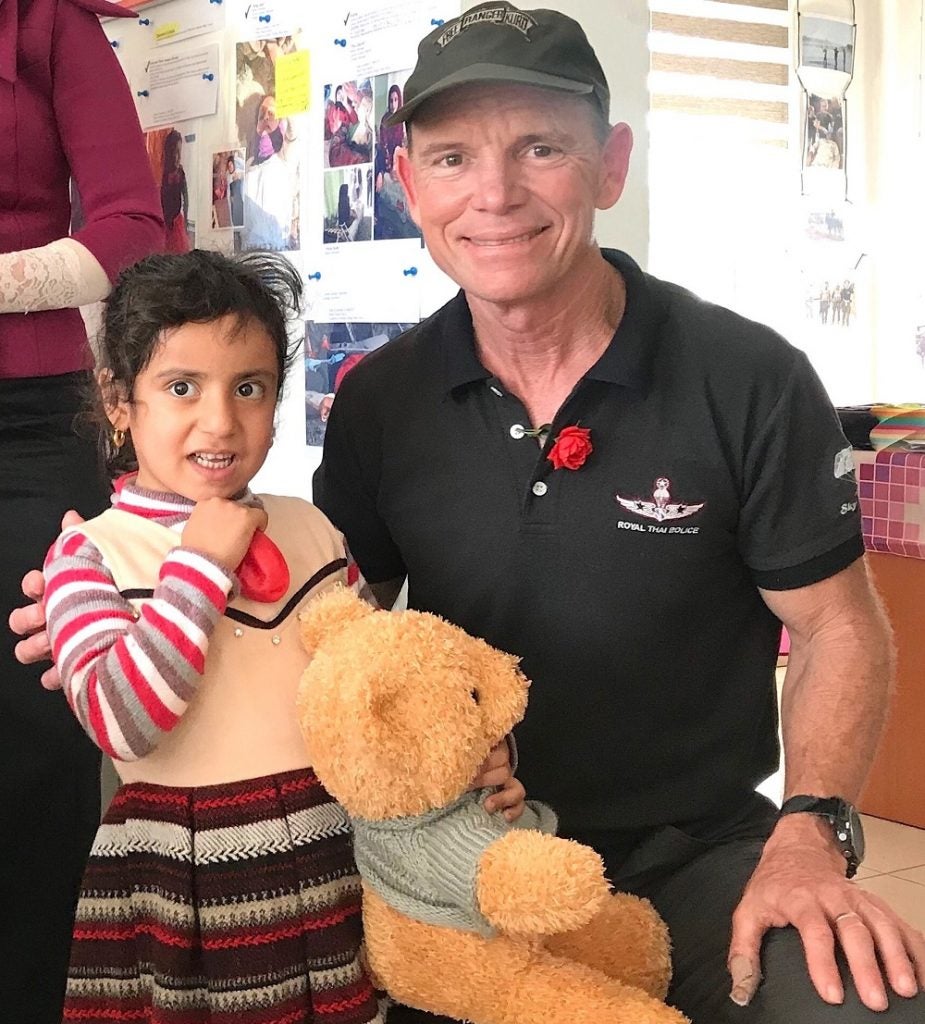
One of the other things I’ve heard you criticised for is that you have always taken your children with you on your relief missions, even from a very young age. How do you justify this?
When Karen and I first were working in Burma we had no kids but once they came along we began to think “Well, what if they get killed! Can we live with ourselves?” And my wife Karen said: “Dave, we are not to be led by all the things that could happen to you, but what are the opportunities that are in front of you.”
It’s good to have children, it’s good to be with them. And the ethnic people in Burma who also have kids say “When you have kids, bring them to us!” When we bought our kids in, they suddenly had hundreds of aunts and uncles who love them. And the people there saw that we felt our kids were no more valuable than their kids. Even though I love my kids more, we are all the same.
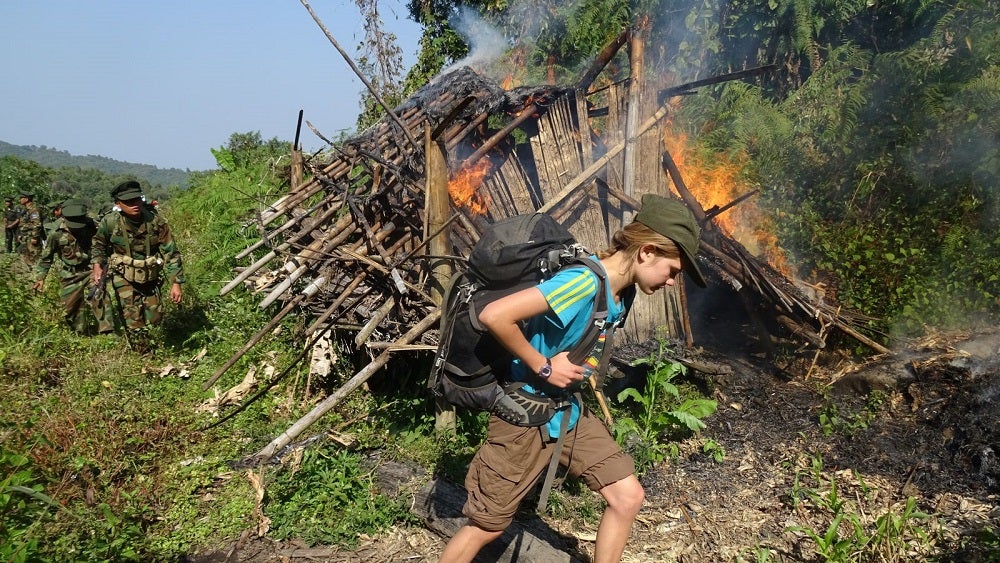
That just drew us together even closer with the ethnics. We took our kids to Sudan, we got bombed every day. But there are kids there too getting bombed every day and my kids are with their kids and hiding too! And the Sudanese leaders said “Oh, you brought your kids. That means you don’t want anything from us. It means you really care for us.”
“You brought your son, your most precious thing. I give you my country.”
Then when we were in Kurdistan, the Kurdish leader said “You bought your son, your most precious thing. I give you my country.” In Iraq the leaders said “You bought your family?! I can’t believe it! But our families are here too, that means we are in this together. That God, in your eyes, loves people equally. So my whole country’s yours.”
My kids have grown up learning to be very tough, very self-sufficient, able to ride horses, drive Humvees, operate machinery, do first aid and not be led by comfort or fear. They’ve learnt to love people of other cultures and to see everybody counts.
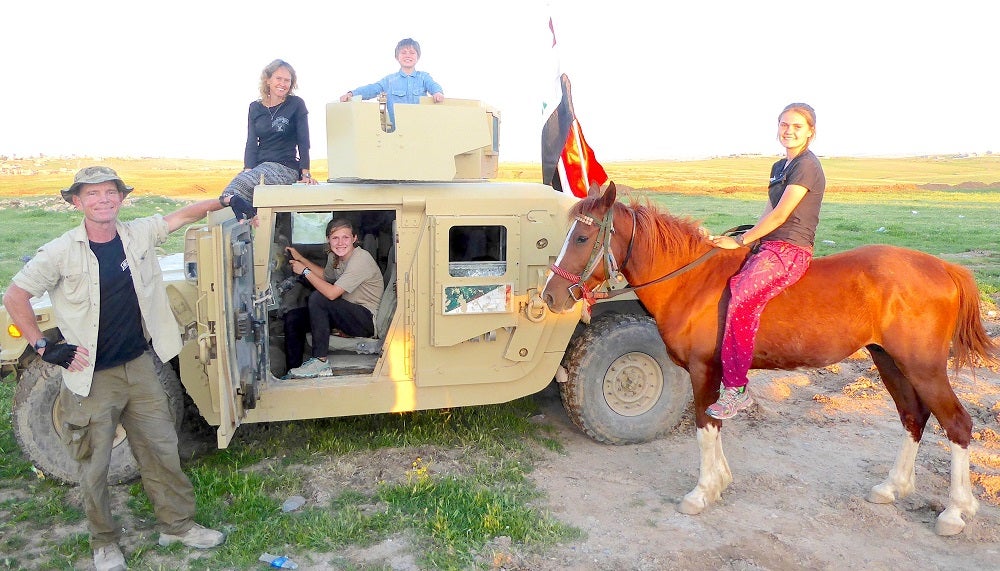
And they have a role, not to fight, but to be back where the families are, to help them.
After Mosul and ISIS’ expulsion from Iraq, FBR turned its focus to Syria. Can you tell us about your experiences there?
In between [missions to Iraq] in 2016 we started going to Syria, multiple times. Also doing small relief there for people under attack by ISIS.
After the Battle of Mosul and ISIS was defeated we continued our work in Syria and we were at the last stronghold of ISIS – Al Baghouz. When it fell we fed 25,000 of the 35,000 that came out of that battle. We treated over 4,000 wounded and even made friends with some ISIS that I believe were genuinely sorry for what they did.
Most were not. Most still wanted to kill us. But some were and we prayed with them and they started crying – “What did I do? What have I become?”
That’s a wonderful thing, when your enemy becomes your friend.
After that we thought that ISIS was pretty tamped down and we would visit Syria intermittently to help with different education and church projects we were asked to help with by some of the remaining Christians.
But then the U.S. government broke our promise to the Kurds and 9 October 2019 they [U.S. forces] moved back and the Turks attacked the Kurds. We were in the middle of that battle and, as you know, Zau Seng (one of FBR’s cameramen) died.
There we fed about 75,000 people total of the 200,000 that had fled and treated about 1,000 wounded. Some of those feedings where one-offs, but 15,000 people we were able to feed for a few months, depending on where we were and what we had.
Now that ISIS has been territorially defeated in the Mid-East, is there still a role there for FBR and if so what?
[In Syria] Now we are involved humanitarian missions and in rebuilding churches that have been destroyed by ISIS, in particular the one in Raqqa – an Armenian Orthodox church.
And we are still involved, we are going back hopefully beginning of October to continue encouraging the Kurds, the Christians, the Yazidis and the Arabs there; we are all in this together and to tell their story and to encourage the U.S. government to say we are sorry for the mistake we made in abandoning them and to stay and help these people.
We are still heavily involved in Iraq and Kurdistan, Syria and Burma and sometimes Sudan; there’s a ceasefire in Sudan so we haven’t been back in a while.
What next for Dave Eubank?
I’m not responsible for that. I’m responsible for right now. Am I going to do the right thing? Am I going to act in love? And I depend on Jesus to give me that love which I don’t have. That way when people abuse me or do the wrong thing or mistreat us or try to block us I can think “You know what? I don’t really work for you, I work for God and I can take it, he can take it.”
And that’s how if you follow God – maybe you already are – then when you are doing something you can say “God, did you send me here? Because if you did, please give me the help.”
Because God does not fire and forget, he fire and goes with you. And that means when people treat you bad you can take it, because you don’t work for them, you work for something higher.
So that’s what we are, who we are. My girls are in college now but still will come on some missions with us in between semesters. FBR now has over a hundred teams in Burma, a team in Syria and a team in Iraq and Kurdistan.
“Do This for Love; Free Burma Rangers in the Battle of Mosul” by David Eubank and Hosannah Valentine is available on Amazon.
The opinions expressed in this editorial are those of the author and may not necessarily reflect the opinions or views of Overt Defense

